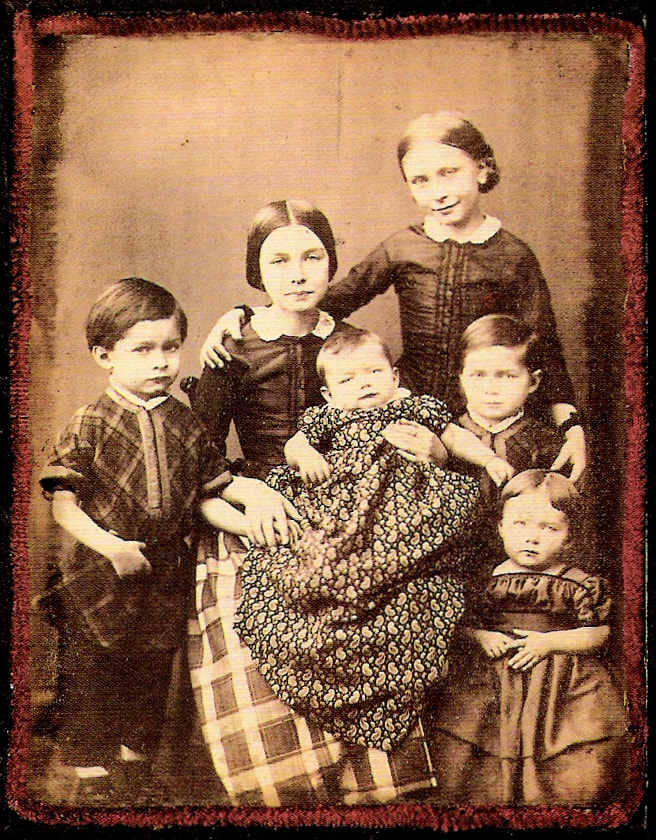ROOMinationsLong ago I started a WordPress account, where I wrote this entry. Deciding to keep the eggs in this basket I am pasting it here. It's a bit outdated now, but there you go.
ROOMinations Mega best-seller ROOM and Friday – a retelling of Robinson Crusoe (kind of) By a strange coincidence, I had just finished reading a translation of Michel Tournier’s 1967 novel Friday when I picked up Emma Donohue’s best-selling page-turner ROOM. Friday is a psychologically intense saga that rewrites Robinson Crusoe, and an undeniably peculiar novel to consider in juxtaposition with ROOM. Daniel Defoe’s 1719 Robinson Crusoe, is the inspiration for many many creative works connecting to the idea of isolation, creative use of limiting parameters, the human spirit, colonization, captivity, and on and on. Many adaptations of the novel range from sublime to ridiculous, including an 1867 operetta, four films, several TV series, and two islands (Chile and Fiji). And don’t forget Swiss Family Robinson and Gilligan’s Island. In literature, there are other numerous riffs on the story, none of which can comfortably be connected to the heartrending story told in ROOM. ROOM is a tale of terrible incarceration, where a young woman is kidnapped, confined to a shed, and routinely raped by “Old Nick” a deviant loner, to whom she bears two children, one stillborn and the second a little boy named Jack. He is turning five at the start of the novel, written mostly in his own words. You think it’s going to be a grim read, but in fact, it is an account from a child’s eyes with his own interpretations of the only world he knows, the eleven-foot square interior of the shed. Friday, in many ways a grim read, also functions as a story about a man (Crusoe) trying to turn his deserted island environment into a facsimile of the world that he once knew. Both narratives are delivered largely in the first person, Jack’s voice, and Crusoe’s journal. The first half of Friday tells of Crusoe’s strategies after being shipwrecked, and like Jack’s mother, the strategies for maintaining a sense of civilization and sanity in the face a great desire to descend into a mire of despondence. There are structured routines for maintaining physical and mental endurance but both occasionally fall into depression. Crusoe actually does wallow in a mucky swamp, a physical “slough of despond”, while Jack’s mother “goes away” – staying in bed and not speaking. During these times Jack does his best to look after himself. For Crusoe, the arrival of Friday changes little initially. He treats him as a servant, his slave, in the manner of western custom of the day, and one who must be civilized. It is only through Friday’s accidental destruction of Crusoe’s built environment does the dynamic alter, and Crusoe comes to appreciate Friday’s contributions to their lives and to allow his colonial preconceptions to fall away. In both situations rescue does finally come, but the nature of the captivity and indeed the overriding themes in the two books diverge dramatically. Jack’s brave adventure (or ”scrave” as he and his mother describe being both brave and scared) is too exciting a read to give away here. For Crusoe and Friday a ship appears, its occupants are shown in all of their cruel materialistic and offensive natures. Crusoe has bonded with his natural state; the island has become his lover and nurturer. He doesn’t like the visitors’ heavy food, their smells, and the way the lower ranks are treated. Out of ROOM and back to the outside world, mother and son have many adjustments to make. There is great joy among family members but also many awkward moments. An interviewer asks whether the Stockholm syndrome came in to play during their captivity. This suggestion incites the mother’s fury, as does the idea that Old Nick was abusive to the boy. She adamantly rejects both suggestions and makes the point that she had never allowed Jack to be seen by their captor. Both stories deal with issues of adjustment when the protagonists are back within civilization. ROOM offers a child’s view of his enlarged world and there are interesting insights here. They are taken care of by family, social services, and the implication is that they will be healthy and socialized after a period of time. In Friday Crusoe has become a different creature. There is an equally positive outcome to the story. If you aren’t going to read the book I can email it to you. Reading these two stories in succession has created interesting thought processes about civilization, nature, and the way we tell stories. Friday delivers critical gravitas but ROOM is a great read with some charming insights imparted through the character of dear little Jack. While there are narrative arcs that pull a reader through the stories, of more interest to me is that as readers we have endless fascination with the reconfiguring of existence within the possible. For each protagonist, choices are made within a narrow range. Jack and his mother choose to risk all for one chance at escape when they are faced with a cruel alternative: Old Nick might turn off their power supply, an action that would lead to slow death. Friday and Crusoe also make choices in terms of their relationships with a natural world versus so-called civilization. Tournier’s refiguring of the Defoe tale throws the whole concept of rescue into question, while the popular novel ROOM delivers a certain level of confidence that the protagonists will happily adjust to their newly expanded horizons.
0 Comments
You can’t always know what things mean to people.
As the director of the Mill, a small art centre in a small town, I'm working away at my desk. It’s a quiet afternoon, with wind rattling the windows, and whistling into my old office. A cab pulls up and I see that it is dropping off Hilda, one of our volunteers. Hilda is a small elderly women who speaks in jerky half sentences. A bit hunched over with arthritis, and missing a few teeth, she is, regardless, a huge help at our openings, looking after the kitchen goodies and keeping the cider hot. Someone will always give her a ride home, along with the leftover treats. There’s one eye that can look askance, and a hairnet tucked around her bun. She lives with her brother in a little house at the end of a laneway. There is no phone, but when we want to ask her for help we call a neighbour, who passes on the message. And Hilda shows up. She will sometimes take a painting class, filling in if the numbers are low. Or paying for it too. She is a fixture at the Mill. We learn later that she is also the oldest member at the bowling alley around the corner. None of us have ever met the brother, but my precursor suggested some level of abuse, saying “I don’t want to know.” So we only know Hilda as a loyal volunteer and a member of our little art community. She has come by to inquire about a letter she received from the provincial government congratulating her on her many years as a volunteer. We relied heavily on our volunteer help so no opportunity was ignored to pass out honours. There was a ten-year pin. She explained that she couldn’t make it to the ceremony. She wasn’t feeling well and was on her way to see the doctor. Then she told me some kind of murky story about her mother and “not wanting to start that again!” A backroom, a mother, and something unsavoury, but again, Hilda’s conversation was hard to follow. “I’m going up to the bank, so I’ll drop you at your doctor’s,” I offered. And that was the last time I saw Hilda. We didn’t know that she had died until we heard from her lawyer. He and his wife had had to clean out her house and handle her estate. Her place was hoarder-full and she had been on a cot in her back porch. Food was only a bit of kibble. She left half of what she had to the Mill and the other half to her church. It was our largest donation to date. Later, spooky people claimed to be seeing Hilda at the Mill, but I never did. There was a parade in Kirkland Lake. Maybe I was five or six, and possibly it was the Santa Claus Parade. But since I was terrified of Santa, that enormous gruff guy with his huge white beard, and those evil green elves that urged little kids to come closer, Santa was not who I considered as a celebrity. He was more of a boogeyman. No indeed. This one came along much earlier in the procession. He was big too, and he bobbed along, nodding and waving to the crowd, and, I thought, especially to me. His giant head took over most of his body and you could just see little legs holding him up. His helpers threw out little treat packets. It was none other than, The One, The Only, MR PEANUT! From that sighting I became a lifelong fan of Mr. Peanut. Sadly, these days, he has been unfriended throughout the universe because of his association with nut allergies. Cancelled. ☹ Who was your first? It came to pass that Oshawa's outdoor pool would, as in other years, close after Labour Day. Except for one special event, where the pool would stay open and lifeguards engaged just one more day for a doggie swim.
Kids would be in school, and we would all be moving forward into fall activities. However. This particular first day of school was a hot humid ninety degree heat wave, where kids might love to have one more swim on this shortest of school days. Parents and dog lovers were pitted against each other in a most public Facebook outcry. Hundreds weighed in. The anonymous parent who first raised the issue was praised, excoriated, called a Karen, and congratulated for speaking up. Comments flew back and forth, with the main points repeated with increasing levels of ire. Arguments against the doggie swim included: Kids should come first People were suffering in the heat An exception could be made Arguments for the doggie swim included: The pool was reserved Dogs like to get cool too. But The very, very best comment came from an irate and apparently knowledgeable pet owner with inside scoop on the inner workings of the canine brain. The person said, "the dogs look forward to it." Seriously. The dogs were apparently looking forward to September 5 for their swim at the pool. The dogs Looking forward. Not the singer but he was great too.
|
Archives
February 2024
|
Margaret Rodgers | Canada




 RSS Feed
RSS Feed